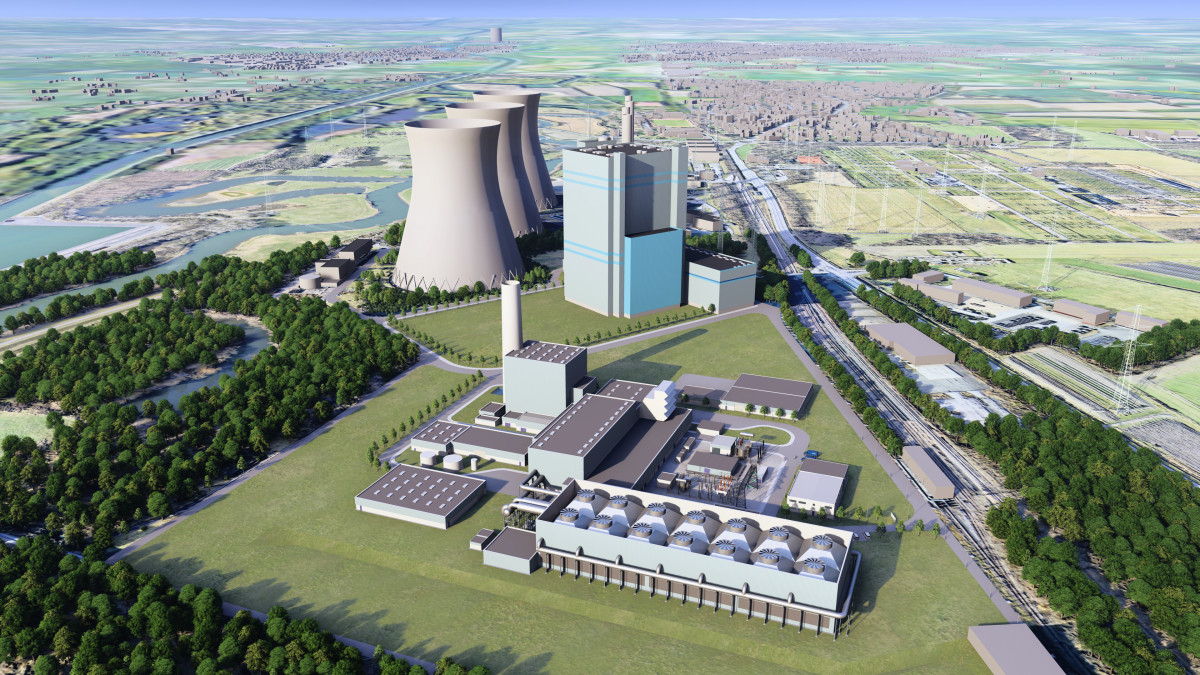Vote25: Construction of new gas power plants must be top priority for next government - energy industry
***Please note, this interview is part of CLEW's 2025 preview series, covering the German national election and relevant climate and energy topics in Europe. Read all interviews here.***
CLEW: The collapse of Olaf Scholz’s coalition government almost a year before its term was due to end means a raft of climate and energy policies remain unfinished. Do you think that parliament will be able to agree on any of the outstanding questions? And where are decisions needed most urgently?

Kerstin Andreae: The time until the snap election in late February absolutely must be used to reach agreements on important regulatory and technical questions. This includes a reform of the Energy Industry Act to address the problem of peak feed-in by solar PV installations, of which we have seen record expansion levels in the past years.
These installations were connected to the grid without ensuring adequate steering mechanisms and this is now becoming a risk for grid stability. We therefore quickly need a reliable framework for further solar power expansion and the stability of our grids. Party politics should not be standing in the way of that.
I cannot see any reason why no decisions should be made in areas where most parties generally agree. This especially concerns policy projects that are linked to upcoming deadlines, for example extending the combined-heat-and-power law. This law should be prolonged within the current term to avoid a slowdown in the expansion of district heating and to safeguard existing projects.
With a view to European cooperation, the parties in Germany’s parliament should also work towards adapting the gas storage levy. There should be no major dissent to the draft that has already been debated in parliament and in the council of state governments (Bundesrat). Time is running out as the next adaptation of the levy is due on 1 January next year.
What about the Power Plant Security Act? The BDEW urged policymakers to not block this key policy package immediately after the government’s break-up on 6 November.
The Power Plant Security Act is of enormous importance when it comes to safeguarding the energy supply of our country. The law regulates the construction of new hydrogen-ready gas power plants, and we need an agreement on how it should be implemented as soon as possible to allow related investments to be made.
We must retain the capability to act in the current situation and ensure that important measures are not left untouched. It is necessary to implement policy proposals that cannot wait until the new year before the end of this year.
Other important projects that a new government will have to address include the introduction of a capacity market and better load management for the grid.
Besides the unresolved policy proposals the outgoing government has left behind, what did the coalition achieve during its roughly three years in office which, for a long time, were dominated by the energy crisis?
The coalition’s early end must not overshadow the fact that this government has made many important decisions that will accelerate the energy transition and make our energy supply more secure. This especially concerns the expansion of renewable power sources, for which the coalition has removed many obstacles.
The economy ministry and the energy industry together have achieved a quick filling of Germany’s gas storages [after the country ended imports of gas from Russia]. Companies that are essential for importing gas have been financially strengthened and new import terminals for liquefied natural gas (LNG) have been constructed on Germany’s coasts at a pace few had deemed possible.
Together with the energy industry, the government has made sure that Germany made it safely through the energy crisis and that supply security was always guaranteed.
Which policies will a new government have to address first after entering office, presumably several weeks or even months after the elections?
Implementing the Power Plant Security Act must be the top priority for a new government and should be addressed in its agenda for the first 100 days in office. Germany’s coal phase-out can only work if enough gas-fired power plants are built – supply security is the absolute priority here.
Since building a power plant takes several years, construction must start as soon as possible. And to unlock the required investments, we need to begin auctioning these plants in 2025. The snap elections must not lead to further delays on this.
Beyond the elections, which topics look set to dominate the climate and energy debate in 2025?
Our future energy system is based on renewables, accompanied by decarbonised gas. We are on the right track regarding renewable power sources, but remaining obstacles regarding bureaucracy, licensing, and designating construction areas still have to be removed. Besides expansion, greater flexibility is a central pillar.
This will require a comprehensive energy storage strategy that encompasses batteries, heat-based storages and storable renewable gas, which will be decisive when it comes to efficiently using intermittent electricity production. We need a climate neutral, flexible, and reliable energy system that is economically viable and actively supports the transition of the heating sector.
However, energy policy should not be measures in just legislative periods but rather in whole decades. Companies need planning security to guarantee the required investments for the energy transition. This is true for industrial companies that want to transform their production towards climate neutral fuels, and it is true for households that plan to invest into a new heating system. It would therefore not be of any help if a new government scraps all the fundamental decisions that the previous government made.


